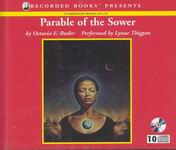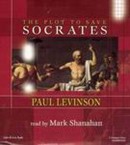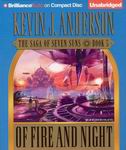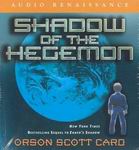
 Parable of the Sower
Parable of the Sower
By Octavia E. Butler; Read by Lynne Thigpen
10 CDs – 12 hours – [UNABRIDGED]
Publisher: Recorded Books
Published: 2000
ISBN: 0788747606
Themes: / Science Fiction / Dystopia / Survival / Religion /
Occasionally in science fiction there comes a novel that should be considered important not only inside the genre, but in all of literature. Like 1984 by George Orwell. Or Fahrenheit 451 by Ray Bradbury. Or like nearly everything Octavia Butler ever wrote, including this novel.
Parable of the Sower is a novel consisting of the diary entries of the main character, a teen named Lauren. She lives and writes in 2020’s United States of America, in the Los Angeles area. Butler imagines a lawless future America where everyone is on their own. Lauren lives in a cul-de-sac with a wall around it – her family and several others haved pooled together. Murders are commonplace, as is theft, and people struggle to survive while the world moves on. Lauren comments on the death of an astronaut on Mars, the election of a new president, as well as her ever-changing day-to-day life.
Complicating things is the fact that Lauren is a hyper-empath. If she sees someone get hurt, she feels that pain as if it was happening to her. An extremely uncomfortable thing to be, when pain exists all around her.
Out of all of this, she creates a new religion, called Earthseed, which springs forth from the beliefs formed by her life’s circumstances. She isn’t inventing it, as she says more than once – no, she’s discovering it. In a world in which the only surety is change, she discovers God. And God, she figures, is change itself.
Lynne Thigpen is flawless in her narration of this book. She did a wonderful job speaking as if the world in which Lauren moved was normal. Her emphasis and emotion perfectly fit the character. The result was an audiobook that I’m better off for having heard.
Posted by Scott D. Danielson




